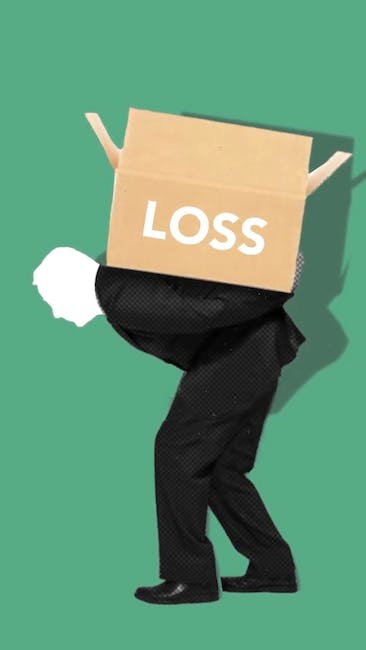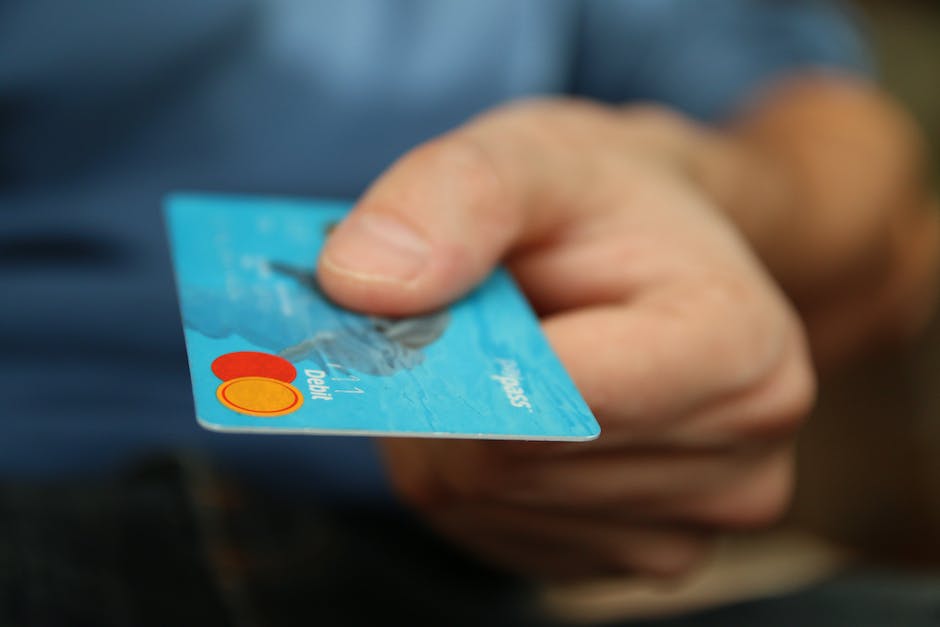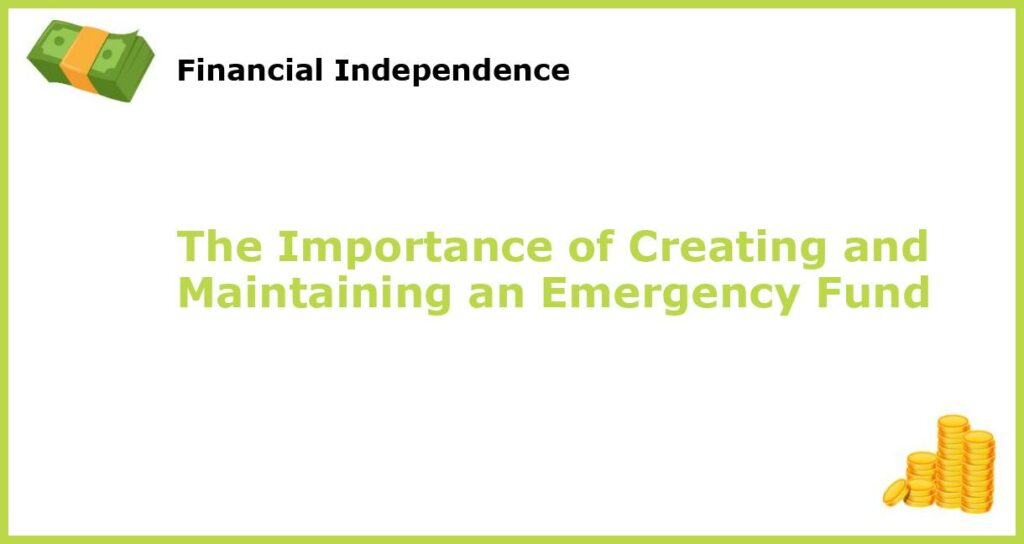Financial independence should be the target of everyone, but this does not come easy without a carefully laid out financial plan. One of the must-have elements of such a plan is an Emergency Fund.
Preparedness for the Unexpected

Life is unpredictable, and no one is ever truly prepared for what may come in the future. However, with a comprehensive emergency fund, financial disaster is less likely to occur. Knowing that you have cash put aside for emergencies will give you peace of mind even when things take a wrong turn. Having an emergency fund is the first step towards financial security, as it gives you a sense of control over your finances. It is important to establish the amount to save for your emergency fund, and you should aim to save at least six months of your living expenses. This fund can go a long way in helping you overcome various emergencies such as job loss, medical bills, unexpected car repairs, and natural disasters. In the long run, knowing you have a safety net to fall back on can help you cope with difficult situations with more ease.
No Need for a Credit Card Debt

Avoiding credit card debt is an essential yet challenging task to accomplish. Credit cards can provide a false sense of security, often leading to overcharging, overspending, and eventually, debts. Under such circumstances, an emergency fund can go a long way to cover costs without relying solely on credit cards. The high-interest rates that accompany credit card debts can tug away large amounts of cash from your monthly income, making it more difficult to save for the future. Having an emergency fund can act as a safety net, helping you avoid credit card debts and reducing the financial burden that comes with them.
Job Loss Won’t Mean a Financial Collapse

Unemployment is an unexpected situation that can force anyone to be out of work for some time. Without an emergency fund, there is no guarantee of having sufficient funds to support you and your household until you find a new job. An emergency fund can give you time to recover financially and look for alternate income streams. In case of job loss, an emergency fund can give you the financial stability you need to manage expenses, such as rent, utilities, and food, until you secure another job. A significant financial cushion can also allow you to be more selective in your job search, prioritizing a good opportunity, rather than accepting any job simply out of desperation.
Money for Medical Emergencies

Having Health Insurance is crucial, but there are times the out-of-pocket expenses become overwhelming. An emergency fund can save you from such unpleasant situations where you have bills piling up, and no funds to cater for them. Health care is a necessary expense, and medical emergencies can arise without warning. An emergency fund can provide much-needed relief, allowing you to focus more on your health without worrying about medical bills. Additionally, the emergency fund can be used to pay for non-medical expenses that may arise during the recovery period, such as transportation or child-care costs.
The Importance of a Financial Cushion

Financial cushion refers to the extra cash one has saved up to cope up with unexpected expenses. The cushion can be considered the emergency fund’s starting point, and it often comes from the money saved from cutting back on your unnecessary expenses. This financial cushion, once built up, can provide peace of mind. A financial cushion can be useful for minor emergencies, such as car repairs, household maintenance, and travel emergencies, while an emergency fund can cover significant expenses such as job loss or medical emergencies. Dedicating resources towards building a financial cushion is an excellent way to start building an emergency fund.
Disaster Preparedness

Having an emergency fund goes beyond preparing for minor issues but goes ahead to cater for natural disasters. Natural disasters can lead to displacement and loss of property. With an emergency fund, one can survive such calamities with less financial pressure. Even insurance policies often do not cover all the expenses incurred during a natural disaster or their aftermath. An emergency fund can provide much-needed support for vital expenses such as home repairs, temporary housing, and incidentals like food, water and hygiene supplies. Having an emergency fund ensures that you are in a better financial position to deal with unexpected emergencies such as a natural disaster, with minimal disruption to your daily life.
The Importance of Saving

Saving is an excellent way to stay ahead of financial problems. Saving in small amounts over a long period will eventually result in significant funds. An emergency fund gives you an avenue to save without pressure, and this can lead to an overall healthier financial lifestyle. Besides establishing an emergency fund, it is vital to ensure a continuous flow of savings to cater for future emergencies. You can achieve this by automating your savings plan, establishing a disciplined savings habit or creating an ‘if then’ monthly budget that directs your surplus funds towards your emergency fund. Saving prevents you from living beyond your means and helps you plan for your future financial obligations.
Unexpected Costs

Unexpected expenses can pop up when you least expect it, and there is no way to predict their occurrence. Examples include sudden car repairs, home maintenance, and trips to the dentists. Such expenses can cause massive financial headaches, but with an emergency fund, they become just another routine expense. The unexpected costs should not cause financial hardships or force you to compromise your long-term financial goals. With an emergency fund, you avoid having to dip into your savings, retirement accounts, or borrowing money to cater for such expenses. This financial safety net ensures that you remain on track in your overall financial plan.
The Cost of Peace of Mind

Finally, dedicating time and resources to building an emergency fund may seem unnecessary when already bogged down with bills and financial responsibilities. However, a healthy emergency fund can give you peace of mind and financial comfort that cannot compare to the cost of not having it. The cost of being unprepared for emergencies can lead to more significant financial problems, such as poor credit, bankruptcy or foreclosures. Having an emergency fund leads to a healthier financial lifestyle, better money choices, and more significant gains towards your financial goals. Most importantly, having an emergency fund instills the confidence that you are prepared to deal with unexpected expenses and can weather any financial storm.







